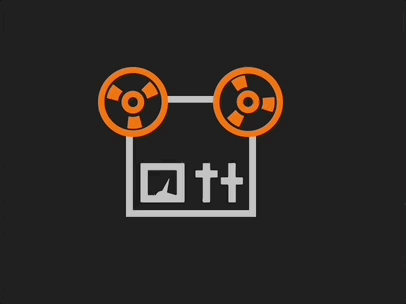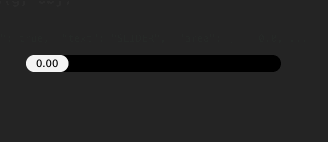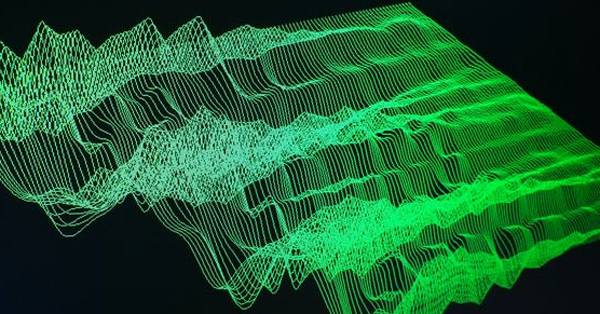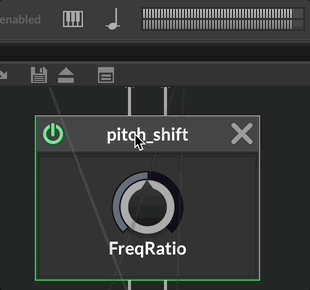Beyhan, 38, Turkey.
Chemical engineer MSc, Mixing engineer, Graphic designer, Music Producer (Electronic Music & Trailer Soundtracks)
Beyhan, 38, Turkey.
Chemical engineer MSc, Mixing engineer, Graphic designer, Music Producer (Electronic Music & Trailer Soundtracks)
Hello Hise family,
Several friends asked me for some LAF examples lately. I think it's a good idea to share them here. If you'd like to share yor LAF stuff, please post them here. Let's make a great LAF library together 
Here is the GitHub link for this collection: https://github.com/christoph-hart/hise_laf_library/blob/main/Examples.md
The below one is the first kit that uses Text Sliders, Arc Sliders, Gradient colored custom vector buttons.
NOTE: The Gandalf icon is just for an example to show how to use custom vector graphics in the LAF buttons, so make sure the licensing terms before using this icon. You can replace it with your icons.
When I find some time, I will update this post with new kits.

This cool LAF Table comes from @Fortune

Knob Peak Meter by @Steve-Mohican

Shaded SliderPacks by @DanH

Skeuomorphic Knob by @Straticah

3D Big & Small Knobs by @Soundavid

Rotating Tape Reel icon Knobs by @Fortune

Horizontal Linear Slider with Rounded Corners by @ulrik

Feature request
It's actually compatibility request. Native Support for Apple ARM cpu computers.
Basically Done - it's not 100% stable, but I can compile a few example projects for M1.
Hi everyone
As you might know from the forum, in some plugins, there are multi-instance crash issues in all DAWs but mostly Cubase, Reaper, Studio One.
If the user inserts one plugin instance in the DAW project, it will be ok. But if the user inserts multi plugin instances (like 5 to 10), in some machines, the DAW project can not be opened again (no problem while inserting and using in the DAW project by the way, the only problem is about re-opening the DAW project again) and this is a nightmare for a user/customer also for you too as the plugin developer :)
These multi instance crashes can be inverse proportion. For example, DAW project may crash with only 3 instances of your plugin. But it may not crash with 50 instances :) Or vice versa. It's all about moodycamels queue issue with Hise.
Of course this issue is up to your code optimization. If the communication queue between audio thread and UI is full, that means your plugin is sending too many messages. These too many messages can cause a congestion / bottleneck and then the crash happens finally. The DAW project can’t be opened again!
I’ve been investigating this issue (also acording to the users’ feedbacks of course) for a while and I just wanted to share my observations with you. These are my experiments and observations. If you find out anything else please wellcome and share.
Please note that “Multi instance DAW Crash Issue” has no only one cause. This issue is the sum of various situations. If you will be careful about these causes, the crash issue can be reduced or even fixed. The main goal is making a very light cpu / ram user plugin. So, possible causes are described below:
Wrong If Statement usage
One cause is using too much sequential if statements in a wrong way. Just a quick example for wrong usage:
if (value == 1)
{
Do something
}
if (value == 2)
{
Do something
}
if (value == 3)
{
Do something
}
if (value == 4)
{
Do something
}
In above code, since each if statement will be checked and that will cause too much message during the initialization. Instead of the sequential if statements, this implementation should be done like that:
if (value == 1)
{
Do something
}
else if (value == 2)
{
Do something
}
else if (value == 3)
{
Do something
}
else
{
Do something
}
Now it is correct. With using else if, when the condition complies it will exit the statement and each if statement won't be checked. This will massively reduce the clog and the plugin will be much more tranquiled, relaxed :) Alternatively you can use switch / case statements for this purpose too.
setAttribute:
Another cause is the amount of used setAttribute APIs. More setAttribute you use, it means the plugin probably will crash more likely in multi-instances. (Remember sending too many messages). Of course you will need to use it in most cases. But if there is a case that you can live without using even one line, try not to use it. Do not over use setAttribute in your code and be careful while you use it especially in an array usage.
Shared Functions:
Shared functions have been used in various places in the same plugin. If these functions have lot's of setAttribute APIs, and if you used multiple shared functions in one GUI element (for example Link Button), the plugin tends to crash in multiple instances of course because of the bottleneck on the initialization.
Image size:
Total used image size is very important too. Please note that, even if you compressed images and the size is reduced; it doesn’t matters! On the exported plugins, the image will take it’s normal place inside the memory like it’s not compressed, as big sized bitmaps. So be careful about image dimensions and formats. For example if your background image doesn’t have transpency, there is no need to use it as.png file. Instead, use as jpg. Because .png files can be 3 or 4 times bigger than jpg files. Using jpg files will end up big bitmaps too but at least you will not get "Heap is Out of Space" error while compilng.
Also avoid using big pixel sizes. For example if your GUI canvas size is 1000 x 600 pixels, there is no need to use 5000x3000 pixels :) Try to sharp the pixel sizes too, as much as you can. For knobs, calculate the optimum frame size for your GUI mesaurements and then prepare the imagestrip acording to this size. Don’t use oversized image strips. We need to make a very light cpu and ram sucker plugin :) Acording to my observations, going above the 15MB total image size, the multi instance crash possibility will be much more higher :)
Deferring Callbacks:
It’s not the ultimate cure for the crash issue but it can be a big improvement for some situations. Search forum for the usage of deferred callbacks. Also if you can reproduce the crash issue in your system, try using and not using plugin exports individually. Observe the impact, if deferring callbacks makes the improvement, use it. Also multi instance DAW testing is a good idea, save multi plugin opened DAW sessions individually (like 5 instances, 10 instances or 30 instances) and try to reopen them :)
Timer Objects:
Over used Timer objects can cause problems too. Especially very short times like 10ms, 20ms….etc.
Simple Serial Copy Protection:
If you are using thousands of long serial number batches in your plugin, since these thousands of serial numbers will be checked in every initialization, it can cause crashes. Instead of using thousands of lines for the serial copy protection, use the formula technique for serial number usage. Or make the serial check once a day.
OpenGL
If your plugin uses lot's of live analysis, vector based animations...etc, using OpenGL will be a good improvement. But if your plugin doesn't use stuff like that, it will has no impact, in some conditions also negative impact like black screen, not loading the plugin, extra crashes.... etc.
This is not finished yet, all UI is Custom LAF & Paint Routines.

Ok to recap all the things, the below process is the way I use. Be careful with the spaces and other chars with these codes:
1) Export the plugin from HISE
2) Sign the plugin: In the below example, my plugin folder is /Volumes/UnsignedPlugins/ For plugin signing, you need your Developer ID Application Certificate. Below code if for .vst, and similarly it will be same for vst3 and au plugins, only the file extension will be changed. So the code will be like this:
codesign --force -s "Developer ID Application: John Doe" "/Volumes/UnsignedPlugins/MyPlugin.vst"
This code is for checking the plugin signing process if it is successful or not:
pkgutil --check-signature "/Volumes/UnsignedPlugins/MyPlugin.vst"
3) Create a .pkg installer with WhiteBox Packages (without adding the Developer ID Installer Certificate). In this example the installer name is MyPlugin_Installer_v1.0.0.pkg
4) Sign the installer: My unsigned installer folder is /Volumes/UnsignedInstallers/. Put the created .pkg installer (in step 3) into this folder. Also, my signed installer folder is /Volumes/SignedInstallers/. Below code will create a new signed installer file which will be placed to signed installer folder. For the installer signing, you also need your Developer ID Installer Certificate So the code will be like this:
productsign --sign "Developer ID Installer: John Doe" "/Volumes/UnsignedInstallers/MyPlugin_Installer_v1.0.0.pkg" "/Volumes/SignedInstallers/MyPlugin_Installer_v1.0.0.pkg"
This code is for checking the installer signing process if it is successful or not:
pkgutil --check-signature "/Volumes/SignedInstallers/MyPlugin_Installer_v1.0.0.pkg"
5) Notarize the installer: For this, you'll need an app specific password. In the below notarization code, the app specific password is (for example) abcd-efgh-ijkl-mnop You can use one password for all of your products, or you can use individual. But be aware that there is a limit for app specific passwords, so IMO less is better. The notarization code will be this:
xcrun altool --notarize-app -f "/Volumes/SignedInstallers/MyPlugin_Installer_v1.0.0.pkg" --primary-bundle-id com.myplugininstaller.pkg --username "johndoe@gmail.com" --password "abcd-efgh-ijkl-mnop"
After applying the notarization code to the Terminal, wait for the upload process is done. After the upload finished, wait for the Apple email for the "notarization is successful" notification. After the uploading, mostly it takes with in 15 minutes. rarely it can take 4-5 hours but it is so uncommon. If you haven't got the email yet, wait for it. Don't try to re-notarize, the Apple email will come soon or later. Sequential notarization attempts cause fucked up failures.
6) Time Staple the Installer: After the "notarization is successful" email, the last step comes, Time Stamp. The code is this:
xcrun stapler staple "/Volumes/SignedInstallers/MyPlugin_Installer_v1.0.0.pkg"
That's it :)
Also, after the Time Stamp, you can check the notarization status with below code. If you get "status: Accepted", then that means the notarization process is successful:
spctl -a -vvv -t install "/Volumes/SignedInstallers/MyPlugin_Installer_v1.0.0.pkg"
The famous and long time-requested "Expandable UI" feature by many people.
https://forum.hise.audio/topic/7266/expandable-gui?_=1712308730682
Feature Request:
HQ Wavetable Synthesis with audio import function and similar (LAF adjustable) display below:

Bug Report
Write Automation Issue on AU Plugins: Write automation doesn't work in exported AU plugins. Read Automation works. (only AU plugins)
Yes there are lots of choices, the only important thing is the way to use these tools. I use Cinema 4D with Octane Render, PS, AI & AE combination.
3 point lighting usually doesn't enough for me, in the end there are more than 10 light sources (some of them are lighting panels with small amounts) and also a good HDR image for the surface reflections.
There is an option for the surface shadows (Shadow Catcher) in Octane Render which is an easy way to make Matte Shadow renders.


@DanH said in Draggable Envelope UI:
Someone made one of these I'm sure, but I can't find it in the forum!
It’s here, by @HISEnberg : https://github.com/christoph-hart/hise_laf_library/blob/main/Examples.md
@HISEnberg You can create a self signed certificate and sign the AAX plugins with it. It’s free and works for me for years. Just create a self signed certificate on yor Mac using your Apple Developer account. Then transfer it to Windows pc, use this certificate for AAX code signing.
Other than AAX, I don’t code sign vst or installers on Windows for years. It’s not necessary.
Considering that even some big companies in the industry do not make codesign for Windows, I think it is an unnecessary process. All Windows users know how to bypass the blue window that appears when the installers are opened, there is no need to spend money just for this. Also, the installation is already very difficult. As I said, I have not used it for years and, I do not think you need to waste your money.
If Windows makes it a “must” in the future, just like Apple did, then we can talk this. But at least for now, no need to do it
@HISEnberg If you follow the code signing guide the Pace sent you, the process is pretty straightforward.
@Chazrox What we do for Projucer is valid for the plugins too.
https://forum.hise.audio/topic/3872/projucer-won-t-open-on-latest-mac-update/16
@Gab Install the GeneralSettings.xml file with OPEN_GL="1" together with the plugin.
To do this, you can put this file to the installer and copy it to the AppData folder during the plugin installation.
@treynterrio said in Pitch Shifter (FAUST/RNBO/C++):
@orange the pitch shift node is definitely better
Yes it is much better than the Faust ones.
@orange when I pitch down it destroys the entire sound and hise crashes.
It doesn't crash here, I am using a commit from 4th April.

@treynterrio Have you tried the pitch shift node that was recently added to HISE?
@ustk said in From Display Buffer to text:
@orange That's because the magnitude is the max level. Since you are inverting the value in the network (not compressing = 1.0), a gain factor of 1.0 is 0dB.
You need to ask yourself if you want to read the whole buffer magnitude, the RMS or an instantaneous (I should rather say short time) value.
While the graphic shows the long Buffer Length value (65536), yes I want the text to be the short Buffer Length value like 1024.
But as far as I can see, setRingBufferProperties cannot be added to the same Display Buffer with two different Buffer Lengths. It always takes just one value (the latest one).
What should be the solution for this?
@hyperphonias Hello. Yes, just modulate the Multiply parameter in the pma node, it will scale the eq gain changes.